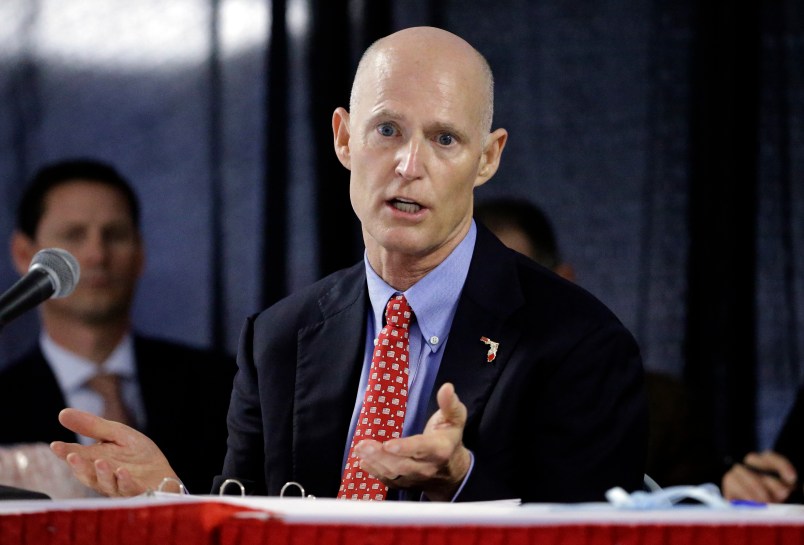State lawmakers are struggling to come up with a contingency plan if the Supreme Court invalidates their federal Obamacare subsidies, according to a Washington Post op-ed by policy experts.
“Dozens of interviews conducted by our research team with political leaders, agency officials and advocacy organizations in those states indicate that the states are almost completely underprepared for the Supreme Court’s decision in [King v. Burwell],” wrote David K. Jones, an assistant professor at the Boston University School of Public Health, and Nicholas Bagley, an assistant professor of law at the University of Michigan.
So far only Pennsylvania and Delaware have publicly announced that they have put in motion plans to shift their federally-run exchanges to a more state-based system to protect their residents from losing their health insurance tax credits if the Supreme Court rules later this month that subsidies offered in federal exchanges are illegal. Otherwise, the experts said, partisan politics, as well as the silence of the Obama administration, have roiled state-level attempts to come up with a solution in such a circumstance, which could take away the subsidies of 6.4 million people in 34 states.
Jones’ and Bagley’s investigations found that state Republicans, who largely control the legislatures in most of the states likely to be affected, fear a political blowback if they propose any alternative that appears to prop up President Obama’s controversial health care law. Lawmakers also said they were unsure how much assistance the Obama administration would lend them to transition to a state-run exchange, making it difficult to plan for an adverse Supreme Court ruling. To make matters worse, the op-ed authors noted, most of the affected states’ legislative sessions will have ended by the time of the decision.
“The states aren’t prepared for King, and any debates over whether to create state exchanges will be turbulent and difficult,” Jones and Bagley concluded. “In the meantime, millions of people stand to lose their health insurance.”
The two experts have written more in-depth about the political difficulties in a series for Health Affairs Blog profiling five states representative of the general struggles nationwide. In it, they detail Florida Republicans’ general obstinance to expanding any federally-funded health care assistance, Michigan’s fears of a Tea Party revival and North Carolina lawmakers’ ignorance until March that their state’s subsidies were even at risk.
National lawmakers are also at a loss as to what to do in the case the Supreme Court invalidates the subsidies. Republicans have roundly rejected the “one sentence fix” President Obama has asked for — which would just tweak the disputed phrase in the law that prompted the lawsuit in the first place — but have also been unable to settle on their own alternative.







Scalia, Thomas, and Alito are cackling madly. Roberts is smirking.
What are they fully prepared to do is blame The Black Man and it will look like this and its stupidity will make you want to pull your hair out.
Can the GOP take a break from tearing this country up for just a little while please?
Just do your jobs and make things try to run smoother, please. This crisis creation form of government is a waste of resources.
Yo. Wasn’t it Scalia who said that Congress could totally fix this?
UNDERprepared != UNprepared.
Editors? Please? I mean, it’s not like you’re indicating it’s a direct quote in the headline or any—oh, wait… you are.